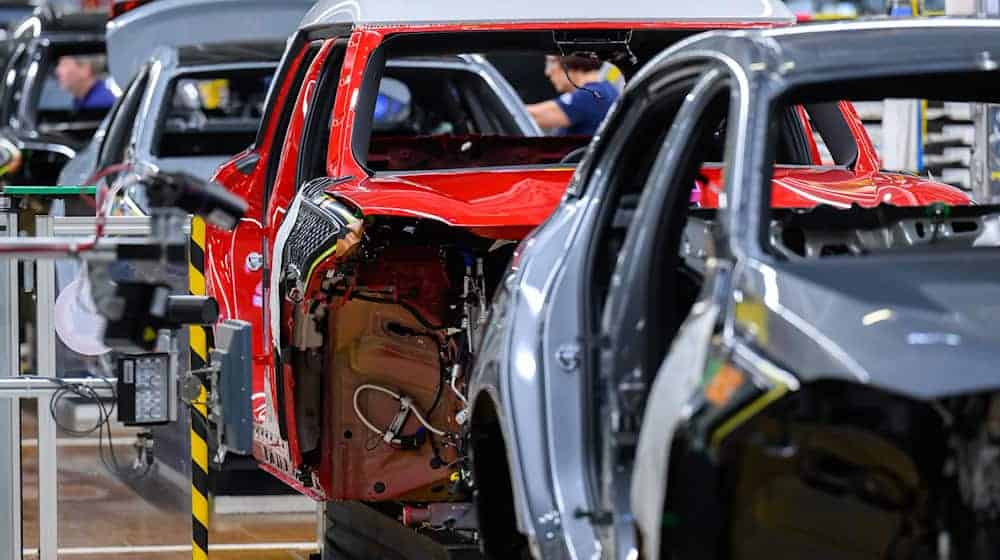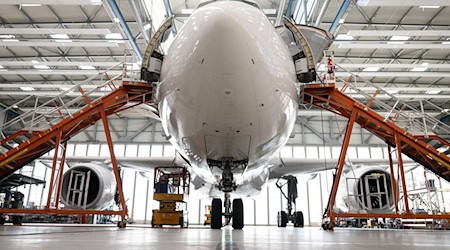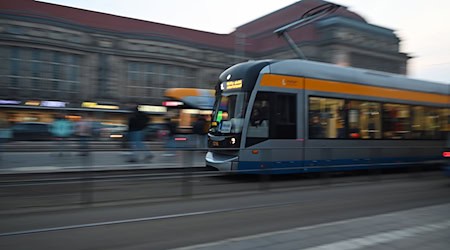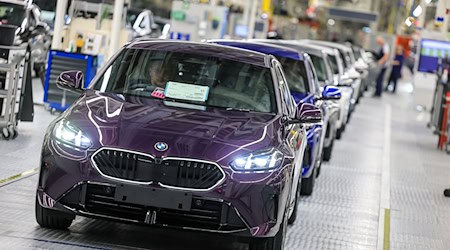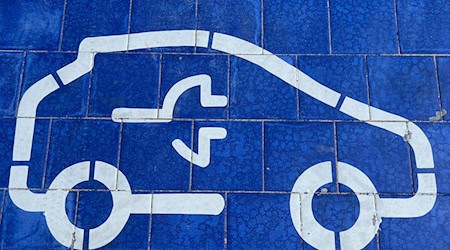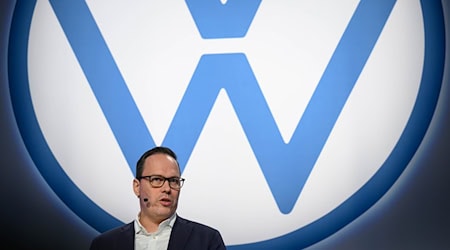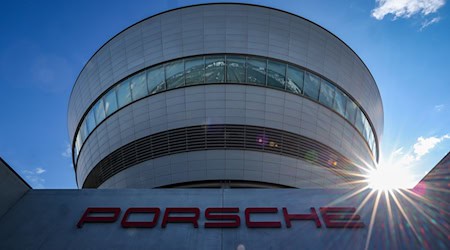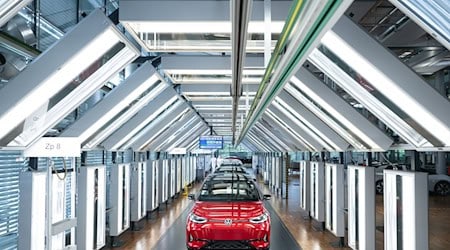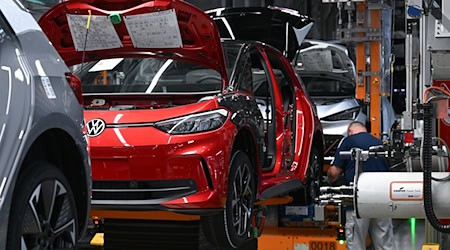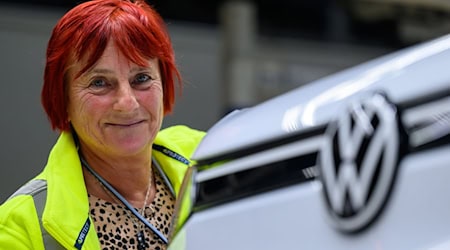For the treasurers of many car cities, it is a new feeling: instead of being able to fall back on bubbling trade tax, they have to make savings. This is because the crisis in the automotive industry is causing companies' profits to collapse - and the income of municipalities that have long been spoiled by cars.
Cities such as Munich, Stuttgart, Wolfsburg and Ingolstadt were still among the cities with the highest revenues in Germany in 2024, according to the recently published "Municipal Finance Report" by the Bertelsmann Foundation. But that could change quickly, says study co-author René Geißler from the Technical University of Applied Sciences Wildau.
"The automotive industry is actually only sending out bad news at the moment," says Geißler. "And all the municipalities that have corresponding businesses are noticing this very quickly in their coffers."
Stuttgart is feeling the effects of the car crisis
The economic slowdown is hitting municipal budgets in the greater Stuttgart area with full force. No wonder, as a number of large companies such as Mercedes-Benz, Porsche and the suppliers Bosch and Mahle are based in the region.
The state capital in particular is having to tighten its belt: Although some adjustments have already been made, there is still a shortfall of almost 800 million euros in the 2026/27 double budget. According to Lord Mayor Frank Nopper (CDU), the austerity budget is "a controlled but very noticeable slowdown for everyone".
In the record year 2023, Stuttgart still took in a good 1.6 billion euros in trade tax. For 2025, the city is now expecting 850 million euros. "Just as Stuttgart benefited in particular from the automotive industry and its partners in economically strong times, declines in sales and exports are now having a direct impact on the city's finances," says the city administration.
Weissach suffers from Porsche slump
The nearby municipality of Weissach, home to the Porsche Development Center, has been hit even harder: For 2025, the treasury had initially expected 65 million euros in trade tax - and recently had to drastically cut the forecast: to three million euros. Sindelfingen, which is closely linked to Mercedes, is expecting a drop of a quarter to 148 million euros.
Reserves in Wolfsburg depleted
The good times are also over at VW's headquarters in Wolfsburg: "Trade tax is and remains the city's main source of income, which is why economic downturns at the Volkswagen Group and companies in the supplier industry have a significant impact on the budget," said a spokesperson for the city.
In 2024, trade tax revenue already fell by 40 percent to 151 million euros. A further decline is expected in 2025. The city has drawn up austerity budgets for 2025 and 2026: At least five million euros are to be saved, primarily in material costs and personnel.
Until 2014, the city was able to enjoy bubbling trade tax revenues, was debt-free and built up reserves for bad times. But then came the diesel scandal in 2015 - and caused VW's profits and tax payments to plummet. The savings from the past have now been used up and the city expects to need to borrow 455 million euros by 2029.
"Historically difficult situation" in Ingolstadt
The city in which the struggling VW subsidiary Audi is based has similar problems: Trade tax is collapsing there too. In 2023, it was still 191.5 million euros. The city had initially expected 70 million for the current year, but now only expects 55 million.
Mayor Michael Kern (CSU) recently spoke of a "dramatic, extremely challenging and historically difficult situation". The city now expects a deficit of 60 to 80 million euros for 2026. Despite austerity packages, it will not be possible to stabilize the budget sufficiently.
Broad base slows down BMW decline in Munich
The BMW home city of Munich is also suffering from a decline in trade tax, which will probably be around 159 million euros lower this year than originally planned. Even if the sum itself is large, it is rather small compared to the total revenue: even after the reduction, the city still expects to receive 3.6 billion euros in trade tax revenue.
Munich, however, has a much more broadly distributed revenue base than other car cities: after all, many other large and financially strong companies are also based here - not least Siemens, Allianz and Munich Re.
Opel demise tears tax hole in Rüsselsheim
The Hessian town of Rüsselsheim am Main is struggling with the consequences of Opel's demise. The car manufacturer, which now belongs to Stellantis, is now only a shadow of its glory days. Instead of more than 30,000 people, only around 8,300 people still work at Opel in Rüsselsheim.
Massive shortfalls in trade tax have left a gaping hole of 85 million euros in the city's budget for the current year. Loans are growing rapidly, meaning there is no money for important projects such as the renovation of the theater.
Zwickau draws on reserves
Volkswagen's e-car site in Zwickau, Saxony, is also feeling the effects of the crisis: this year, the municipality is still expecting 55 million euros in trade tax, a good 20 million euros less than in 2023. The city is not disclosing how much is attributable to VW, citing tax confidentiality. However, a spokeswoman explained: "Due to the high dependence on the automotive industry, the city's financial situation is closely linked to the entrepreneurial success of this economic sector."
However, Zwickau - like Wolfsburg in the past - has also taken precautions: "At present, the city's solvency can be secured by the liquid funds still available from the budget results of previous years."
Study author: car cities have different requirements
Compared with other cities, the automotive locations should still be doing quite well in the end, says study co-author Geißler. "Budget crises are always a bit subjective." Other cities would probably be highly satisfied with income, such as in Ingolstadt or Wolfsburg. However, in the long-rich car cities, a different sense of entitlement has developed. "If there is a slump somewhere, it will shake up urban society."
Copyright 2025, dpa (www.dpa.de). All rights reserved

